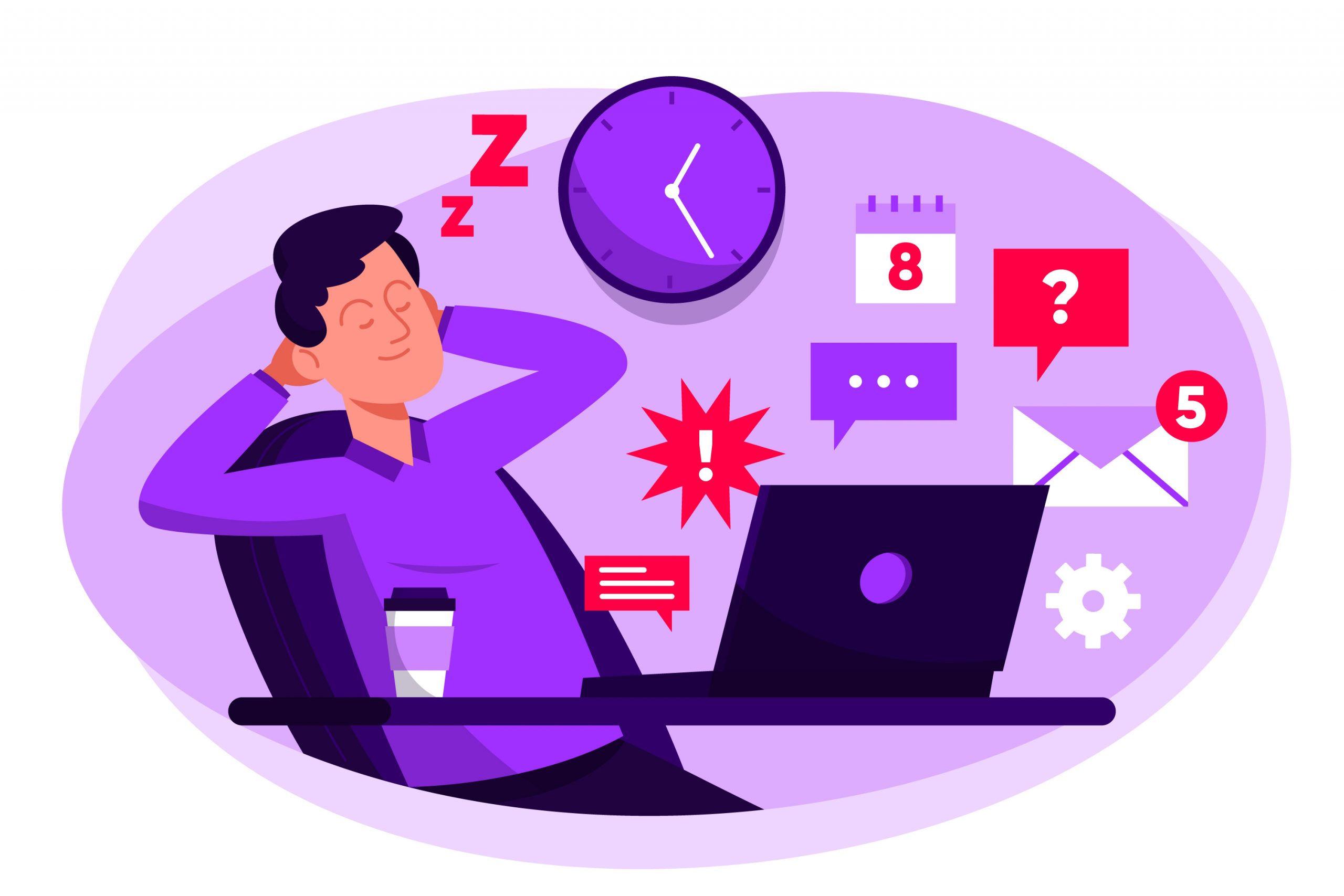Procrastination is a widespread issue that has an impact on all aspects of our lives. If it’s putting off critical tasks or delaying personal goals, the consequences of procrastination are often profound. This article explores procrastination psychology, the consequences it has on both the professional and personal sectors, and the longer-term negative effects of procrastination. When we understand these factors and identify the causes, we can formulate strategies to defeat procrastination, and live better lives.
Understanding Procrastination
Procrastination can be described as deliberate delaying of work despite knowing the negative consequences. The delay can be absurd and unproductive which can cause anxiety and guilt. Understanding the causes of procrastination requires examining the psychological triggers behind it as well as routine patterns that lead to this behaviour.
What is Procrastination?
Procrastination is the process of putting off or delaying projects. Even when they are aware of imminent deadlines and the potential negative consequences, people who are procrastinators face difficulty getting their work done on time. Procrastination may manifest in a variety of ways, such as waiting until the very last minute before beginning the task or delaying work in favor of other tasks which are more pleasurable. The procrastination meaning is usually different for every person however it typically involves an increase of anxiety and fear.
Psychological Roots of Procrastination
According to Psychology Today, the psychological factors for procrastination are complicated and complex. The fear of failing is one of the main reasons; the possibility of committing mistakes is so overwhelming that escaping from work is an option that makes sense. The fear of achieving perfection is further exacerbated since people tend to put off work to ease the stress that comes with doing inadequate work. Furthermore, a lack of motivation is a major factor in this, especially when the tasks seem too difficult or demanding. Additionally, external distractions and poor time management could prolong procrastination. Understanding the psychological causes driving procrastination is essential in devising effective strategies to stop procrastination.
The Impact of Procrastination

Procrastination is a huge influence on many areas of your life, including professional and personal relationships. It’s not only affecting the immediate tasks, but it can also have long-term consequences which can impact your overall health.
On Personal Life
In your personal life procrastination can cause stress to relationships and hamper personal development. The delay in completing commitments and obligations can cause frustration and even disappointment between the family and friends. This is also a way to stop people from working towards their personal objectives, such as exercising or hobbies which can lead to feelings of regret and unfulfillment. In addition, the anxiety and guilt that come with procrastination may exacerbate mental health problems such as depression and anxiety. Verywell Mind claims that in order to understand how to stop procrastinating in personal matters, it is important to work on the psychological and emotional barriers.
On Professional Life
Procrastination can be a major problem when working in a professional environment. Incomplete work, missed deadlines, quality, and lower productivity could jeopardize your career or job safety. People around you may view those who delay work as undependable which can result in poor relationships with colleagues and less possibilities to collaborate. To overcome procrastination at work requires developing effective time management abilities as well as setting clear and attainable goals, and seeking out support from coaches or mentors. In addressing these issues, individuals improve their professional performance and advance their career.
Long-term Consequences
Procrastination’s long-term effects are usually severe and extensive. Procrastination that is persistent can result in an unending cycle of missed opportunities and a persistent lack of achievement. In time, this habit can undermine self-esteem and lead to a constant cycle of failure and stress. It is crucial to know what causes procrastination and get out of this cycle. Implementing strategies like CBT (CBT) as well as executive function coaching can prove successful in dealing with the issue of chronic procrastination as well as ensuring long-term success, says American Psychological Association.
Through analyzing the psychological causes and the effects of procrastination we will be able to better understand how to break free from this habit, and implement strategies to improve our productivity and overall well-being. In the following sections, we’ll explore different strategies and methods to conquer procrastination and create an enlightened life.
Strategies to Overcome Procrastination
Knowing the motives and the consequences of procrastination is crucial, but finding effective strategies to fight it is important. By implementing effective techniques for managing time by setting achievable goals and creating a secure atmosphere, people can be in a position to break out of this vicious cycle.
Time Management Techniques

Effective time management is a crucial component in the fight against procrastination. Methods such as the Pomodoro Technique and time blocking are especially efficient. There is a belief that Pomodoro Technique involves working for 25 minutes and then taking five minutes of rest. This helps to maintain concentration and productivity. This helps in reducing the burden of large tasks by breaking them down into smaller segments which can be controlled. Time blocking involves planning blocks of time for various tasks over the day. This ensures that proper time is devoted to the most important tasks and reduces the risk of putting off work. Utilizing these strategies for managing their time, individuals can enhance their time management skills and reduce procrastination.
Setting Realistic Goals
Setting realistic and achievable goals is a crucial strategy for getting over procrastination. Insane goals can be a source of anxiety and can cause feeling of failure which can lead to procrastination. When you break larger tasks down into smaller, manageable goals people can gain momentum and retain enthusiasm. The SMART goals (Specific, Measurable, Achievable, Relevant and Time bound) are especially efficient in this way. They give a precise outline of what must be achieved and at what time they can reduce the chances of procrastination. Focusing on milestones that are achievable allows people to gradually build confidence and understand how to get out of the habit of procrastination.
Creating a Supportive Environment
A supportive environment can dramatically affect a person’s capacity to get over procrastination. This applies to both the physical workplace as well as the social setting. An organized, clutter-free workspace will improve focus and eliminate distractions which makes it easier to focus. In addition, having positive and motivated people can give encouragement and help. Sharing goals with family, friends or family members can instill a sense of obligation and motivate one to carry through. Participating in groups or communities that have similar goals can provide important support and assistance in getting over the urge to delay. By creating a positive, encouraging environment, people can create the ideal conditions for their productivity and achieve success.
Applying these methods can help people make better use of their time Set achievable goals and create a setting that is conducive to productive work. In the coming sections, we’ll dive deeper into the practical advice and practical implementations of these strategies. We will also provide complete guidelines for beating the urge to delay and increase productivity overall.
Tools and Resources to Improve Productivity

To successfully combat procrastination and improve productivity, making use of different tools and resources can be extremely efficient. Tools that aid in managing time, task management and focus improvement can make tasks easier and less time-consuming, as well as reduce procrastination.
If you want to manage your time, consider using planners and calendars to plan the tasks and prioritize them. These tools allow you to reduce work into smaller steps and assign certain time slots for every task. The use of checklists can provide a euphoria as projects are finished and crossed off.
Tools for improving focus can help focus and eliminate distractions. Set goals specific to every work session, and use timers to give you the feeling of urgency and concentration. Methods such as mindfulness or meditation can aid in improving concentration and ease stress.
Tools for task organization can help to streamline workflow and increase productivity. Prioritizing tasks and breaking them down into smaller, manageable steps will make them less intimidating and more manageable to complete. Maintaining a clean and well-organized workspace can increase efficiency and focus.
Utilizing this set of tools and sources in conjunction with effective goals-setting and time management strategies, will create an efficient system for increasing productivity and eliminating the habit of procrastination.
Conclusion
Recognizing and conquering procrastination is crucial to achieving the success you desire in your professional and personal life. If we can identify the psychological reasons of procrastination, we are able to tackle the root reasons that cause this type of behavior. The effect of procrastination on both professional and personal life is a reason to develop strategies to effectively manage time and set achievable goals and build a supportive atmosphere.
Utilizing time management strategies such as using the Pomodoro Technique and time blocking and setting SMART goals and using productivity tools to drastically reduce the time you spend on procrastination. Making sure your workspace is organized and surrounded by people who are supportive can further increase the capacity to remain engaged and focused.
In the end, combating procrastination is a multifaceted process that involves understanding the psychological causes using practical strategies using effective methods and materials. If you follow these steps people can get out of the habit of procrastination, enhance performance, and live happier lives. The road to overcome procrastination can be a challenge but with the right attitude and the right methods it’s possible. It is now the perfect moment to get started and make positive changes to more efficient and fulfilling life.











